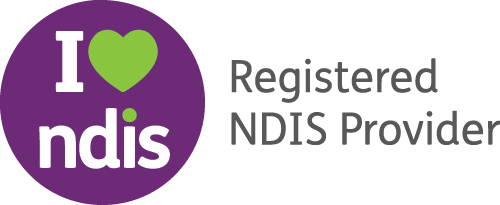Positive Behaviour Support and Housing: Creating Stable Living Arrangements for NDIS Participants with Complex Needs
Finding suitable housing is one of the biggest challenges for NDIS participants living with complex needs or psychosocial disability. But housing isn’t just about where you live, it’s also about how supports are set up around you.
For participants who experience sensory sensitivities or concerning behaviours, a Positive Behaviour Support (PBS)-informed approach can make the difference between a housing arrangement that breaks down and one that becomes a safe and stable home.
At Hand in Hand Support Coordination, we don’t deliver Behaviour Support Plans ourselves, but we embed PBS principles into how we coordinate housing supports. This ensures that Behaviour Support Plans are understood, followed, and integrated into the day-to-day routines of housing and support teams.
What Is Positive Behaviour Support (PBS)?
Positive Behaviour Support (PBS) is an evidence-based approach designed to improve the quality of life for people with disability, while reducing behaviours of concern.
PBS focuses on:
- Understanding the reasons behind behaviours of concern
- Adjusting environments to reduce stress and triggers
- Building positive skills and independence
- Promoting safety, comfort, and community participation
- Reducing the use of restrictive practices
At its heart, PBS is person-centred and strengths-based. It recognises that behaviours are a form of communication and by listening, adapting, and supporting, better outcomes can be achieved for participants and those around them.
How Do You Get a Behaviour Support Plan?
An NDIS-registered Specialist Behaviour Support Practitioner creates a Behaviour Support Plan (BSP).
Here’s how the process works:
- Referral – Usually made through your NDIS plan if you have funding for “Improved Relationships.”
- Assessment – The Behaviour Support Practitioner works with you, your family, and support team to understand behaviours of concern and their triggers.
- Plan Development – A written Behaviour Support Plan is created, outlining proactive strategies, skill-building opportunities, and steps to reduce restrictive practices if they’re in place.
- Implementation – Your support team (including housing providers, support workers, and coordinators like us) follow the plan in daily practice.
- Review – Plans are regularly reviewed to ensure they remain relevant and effective.
Why PBS Matters in Housing
Many participants needing housing also:
- Experience sensory sensitivities
- Live with behaviours of concern
- Require structured, consistent supports
Without a PBS-informed approach, housing placements can break down, leading to unnecessary moves, disrupted supports, and stress for participants and their families.
By aligning housing coordination with PBS, we help ensure that environments are not only physically suitable but also emotionally and behaviorally supportive.
How PBS-Informed Housing Support Works
A PBS-informed approach to housing support means:
- Adjusting environments to reduce triggers and promote comfort
- Coordinating support teams to follow Behaviour Support Plans consistently
- Encouraging meaningful activity and participation in the community
- Facilitating safe, inclusive relationships within the home and neighbourhood
This way, housing becomes more than just accommodation; it becomes a foundation for stability, well-being, and growth.
Our Role as Support Coordinators
At Hand in Hand Support Coordination, we bring PBS principles into every housing journey by:
- Keeping a person-centred, holistic focus
- Working closely with families, therapists, and behaviour support practitioners
- Supporting the consistent and ethical implementation of Behaviour Support Plans
- Advocating for environments that reduce restrictive practices
- Driving systems change where needed to improve housing outcomes
The Benefits of a PBS-Informed Approach to Housing
When PBS is integrated into housing support coordination, the benefits are clear:
- More stable housing outcomes
- Reduced risk of placement breakdown
- Safer, more inclusive living environments
- Meaningful progress towards independence
- Greater confidence for carers and support networks
Conclusion
Housing isn’t just about bricks and mortar; it’s about creating the right environment where someone can live with dignity, safety, and independence.
At
Hand in Hand Support Coordination, our PBS-informed approach ensures that housing arrangements are not only coordinated effectively but also set up for long-term success. By working with behaviour support practitioners, families, and service providers, we help participants with complex needs find not just a house, but a home where they can truly thrive.

We hope this blog was useful.
Hand in Hand Support Coordination specialises in personalised NDIS Support Coordination for participants with complex mental health and physical disabilities across Melbourne and Victoria, focusing on Level 2 and 3 support to create tailored support that aligns with goals and budget.




